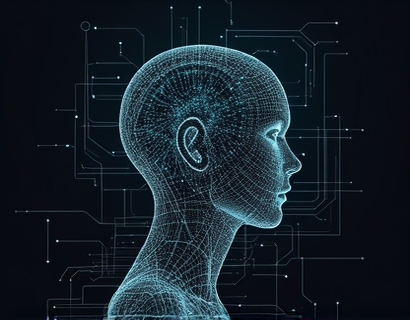AI-Generated Podcasts: Transforming Audio Entertainment with Intelligent Content Creation
In recent years, the landscape of audio entertainment has undergone a significant transformation, thanks to the integration of artificial intelligence in content creation. AI-generated podcasts are at the forefront of this revolution, merging advanced technology with creative storytelling to produce captivating and unique content. This shift is not just about automating the production process but about redefining listener engagement and offering a new dimension in discovering and enjoying insightful discussions on diverse topics.
The concept of AI-generated podcasts involves using machine learning algorithms to analyze vast amounts of data, including successful podcast formats, popular topics, and engaging narrative styles. These algorithms then generate scripts, select appropriate music, and even simulate human-like voices to create a seamless listening experience. The result is a podcast that not only resonates with audiences but also adapts to their preferences over time, ensuring a personalized and engaging experience.
Enhancing Creativity and Efficiency
One of the primary advantages of AI-generated podcasts is the enhancement of creativity and efficiency in content production. Traditional podcasting relies heavily on human writers and producers to conceptualize, script, and produce episodes. This process can be time-consuming and resource-intensive. AI, however, can generate content at a fraction of the time and cost, allowing creators to focus on higher-level tasks such as strategy and quality control.
AI tools can analyze trends and audience preferences to suggest innovative topics and formats that are likely to resonate with listeners. This data-driven approach ensures that podcasts remain relevant and engaging, reducing the risk of content that fails to connect with the audience. Moreover, AI can assist in scriptwriting by suggesting dialogue, transitions, and even humor, making the content more dynamic and entertaining.
Personalization and Adaptation
Personalization is a key factor in modern audio entertainment, and AI-generated podcasts excel in this area. By leveraging user data and listening habits, AI can tailor content to individual preferences, creating a more intimate and engaging experience. For instance, an AI system might adjust the pace of the narration, the type of music, or even the tone of the voice based on a listener's past behavior.
Adaptation is another critical aspect. AI can continuously learn from listener feedback and adjust the content in real-time to maintain engagement. This dynamic approach ensures that podcasts remain fresh and relevant, even as listener interests evolve. The ability to adapt quickly to changing trends and preferences gives AI-generated podcasts a competitive edge in a crowded market.
Quality and Consistency
Consistency in quality is essential for building and maintaining an audience. AI-generated podcasts can maintain a high level of quality across all episodes, as the production process is less dependent on human variables such as fatigue or creativity blocks. AI can ensure that each episode meets certain standards in terms of audio production, script coherence, and narrative flow.
Moreover, AI can handle the repetitive tasks involved in podcast production, such as editing, mixing, and mastering, with precision and speed. This not only improves the overall quality of the podcast but also reduces the workload on human producers, allowing them to focus on more strategic and creative aspects of the project.
Accessibility and Inclusivity
AI-generated podcasts also contribute to making audio entertainment more accessible and inclusive. For individuals with disabilities, AI can generate content that is easier to consume, such as podcasts with adjustable speech rates or those that include descriptive audio for visually impaired listeners. Additionally, AI can translate content into different languages, breaking down language barriers and expanding the potential audience globally.
Inclusivity is further enhanced by the ability of AI to create content that reflects a diverse range of perspectives and experiences. By analyzing data from various sources, AI can identify underrepresented topics and voices, ensuring that podcasts cover a broad spectrum of subjects and viewpoints. This diversity enriches the listening experience and promotes a more inclusive audio landscape.
Challenges and Considerations
Despite the numerous benefits, AI-generated podcasts are not without challenges. One of the primary concerns is the potential loss of human touch and emotional depth in storytelling. While AI can simulate human-like voices and generate coherent scripts, it may struggle to capture the nuances and authenticity that a human creator brings to a podcast.
Another challenge is the ethical use of AI in content creation. Ensuring that AI-generated content does not perpetuate biases or spread misinformation is crucial. Creators must implement robust fact-checking and ethical guidelines to maintain the integrity of the content. Transparency about the use of AI in production is also important to build trust with the audience.
Future Prospects
The future of AI-generated podcasts looks promising, with ongoing advancements in natural language processing, voice synthesis, and content analysis. As AI technology continues to evolve, we can expect even more sophisticated and engaging podcast experiences. The integration of AI with other emerging technologies, such as virtual reality and augmented reality, could further enhance the immersive nature of audio content.
Moreover, the collaboration between human creators and AI systems is likely to become more seamless, combining the best of both worlds. Human creators can focus on high-level creative decisions and emotional storytelling, while AI handles the technical and repetitive aspects of production. This synergy has the potential to revolutionize not only podcasting but also other forms of audio entertainment.
Conclusion
AI-generated podcasts are transforming the audio entertainment industry by offering a new dimension in content creation and listener engagement. By leveraging advanced technology, these podcasts provide a personalized, consistent, and inclusive listening experience that adapts to the evolving preferences of audiences. While challenges remain, the potential benefits and future prospects make AI-generated podcasts an exciting and worthwhile area of exploration for both creators and listeners.









































